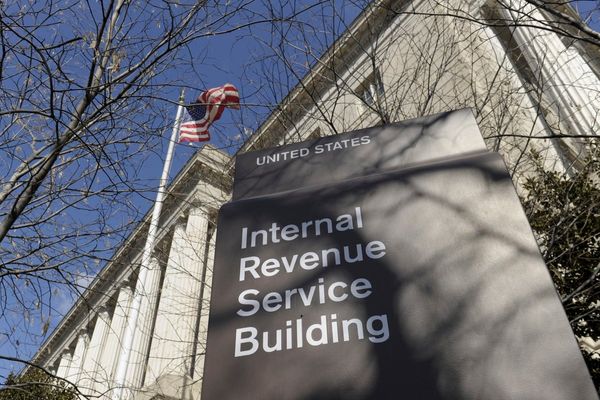The U.S. could join Canada in raising tariff rates on imported Russian goods if Congress approves legislation to revoke most-favored-nation treatment that goods receive as lawmakers look for ways to inflict pain on Moscow for its invasion of Ukraine.
House legislation that would also ban the import of Russian energy and penalize Belarus for its aid to Russia could also see action as early as Tuesday.
Ending the favored tariff rates for Russian products and subjecting them to potentially higher U.S. duties would inflict relatively modest pain. In 2021, the U.S. imported Russian goods valued at $29.7 billion and exported goods valued at $6.4 billion to Russia. The energy import ban is likely to be the most painful, striking a sector that is crucial to Russia’s economy.
[Moves to ban gas and oil imports from Russia gain steam]
Supporters say revoking most-favored-nation status, also known as permanent normal trade relations, is a tool in addition to banking sanctions and export restrictions imposed by the U.S. and allies to pressure Russia to end the unprovoked attack on Ukraine.
“I’m not sure how much of an impact it will have,” Rep. Jimmy Gomez, D-Calif., said, adding that the size of the financial impact was not the issue. “This is a country that has invaded a democracy, and I think we need to send a strong message.”
The legislative move comes after President Joe Biden announced sanctions targeting President Vladimir Putin, his political allies and Russian oligarchs. Those sanctions have so far held back on targeting its oil and gas supply.
Reps. Lloyd Doggett, D-Texas, and Earl Blumenauer, D-Ore., initially offered legislation to end Russia’s most-favored-nation status, which allows most products to enter the U.S. at generally lower tariff rates. But Doggett said Monday in a Dear Colleague letter than it would be revised to include the ban on Russian energy imports and to revoke Belarus’s most-favored-nation status.
The chairs and ranking members of the Ways and Means and Senate Finance committees said the changes were negotiated across chambers and parties.
The U.S. is required by membership in the World Trade Organization to provide such treatment to imported goods of other members of the international body. Russia joined the WTO on Aug. 22, 2012.
House Majority Leader Steny H. Hoyer said last week that he was leaning toward supporting the bill..
[As Ukraine burns, Washington splits over how to help]
“My view is that this is going to get prompt attention. As soon as it does, I certainly am inclined to — and I haven’t talked with the chairman, and I haven’t seen the committee action — inclined to support ensuring that there are very adverse consequences for Russia’s criminal behavior,” Hoyer said.
Doggett, a Ways and Means Committee member, said in his Dear Colleague letter Monday that the bill could be on the floor by Tuesday. A spokesperson for his office said the congressman expects the bill to proceed as stand-alone legislation.
“No single action is sufficient to respond to the outrageous Russian aggression, but this is one more way to isolate the Russian Federation and Belarus,” Doggett wrote.
Congress extended the favorable trade treatment in a 2012 law that ended a 1974 restriction on Russia’s eligibility for permanent normal trade relations. That restriction, known as the Jackson-Vanik amendment, barred products of nonmarket economies that restricted the emigration of their citizens from permanent normal trade relations status. But lawmakers added requirements that human rights violators in Russia be denied visas and their assets frozen even as it removed Jackson-Vanik.
Lawmakers say Congress has the authority to rescind the 2012 action. Sens. Bill Cassidy, R-La., and Sherrod Brown, D-Ohio, have a companion bill to the Doggett-Blumenauer measure.
The Canadian government issued an order that took effect March 2 to withdraw most-favored-nation status from Russia and Belarus for 180 days. An across-the-board 35 percent duty will apply to imports from the two countries unless the most-favored-nation tariff for a product category is higher. The order will not affect goods originating from either country that were in transit to Canada on or before March 2.
The Canadian Parliament could extend the revocation with a vote.
The Doggett-Blumenauer bill would also direct the president to press the WTO to consider suspending Russia’s membership. The international organization seems unlikely to take such action since it would require the consensus of all 164 members, including Russia.
Doggett said in his Dear Colleague letter that the revised bill would also empower Congress to disapprove of any presidential decision to restore normal trade relations or remove the import ban, the letter said.
James Bacchus, a former Democratic House member from Florida and a former chair of the WTO Appellate Body, recently proposed in a Wall Street Journal opinion piece that an amendment process to the organization’s rules that requires approval by two-thirds of 164 members could create a way to expel Russia with the support of just three-quarters of members.
Senate Finance Chair Ron Wyden, D-Ore., also has draft legislation that would end most-favored-nation duty rates for Russia. The Wyden proposal would allow the president to adjust the duties if necessary for “the protection of the essential security of the United States.”
Lindsey McPherson contributed to this report.
The post Lawmakers poised to block imports of Russian energy, end other favorable tariffs appeared first on Roll Call.







